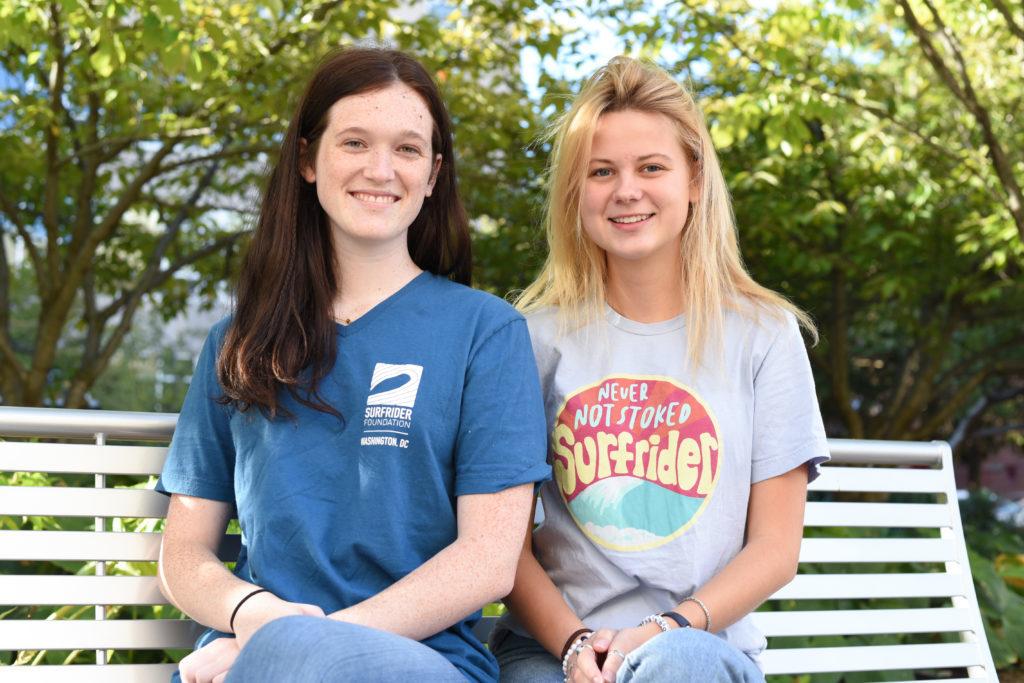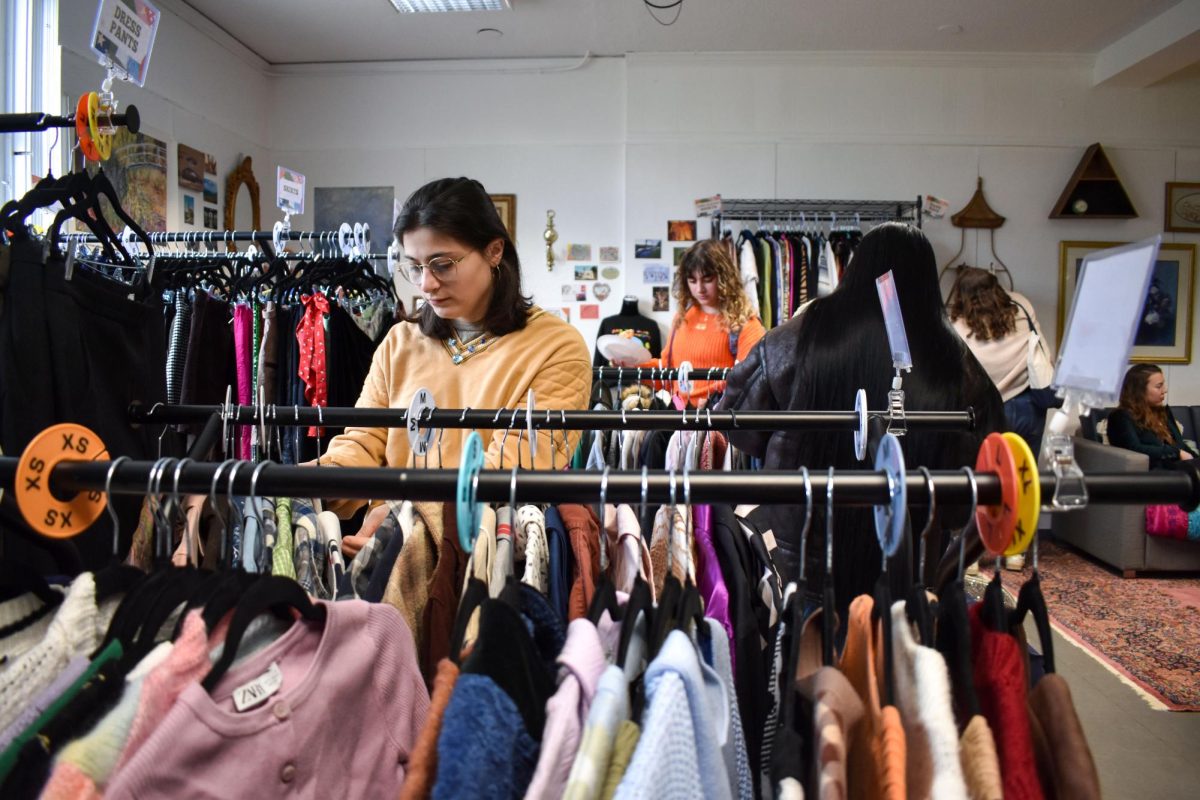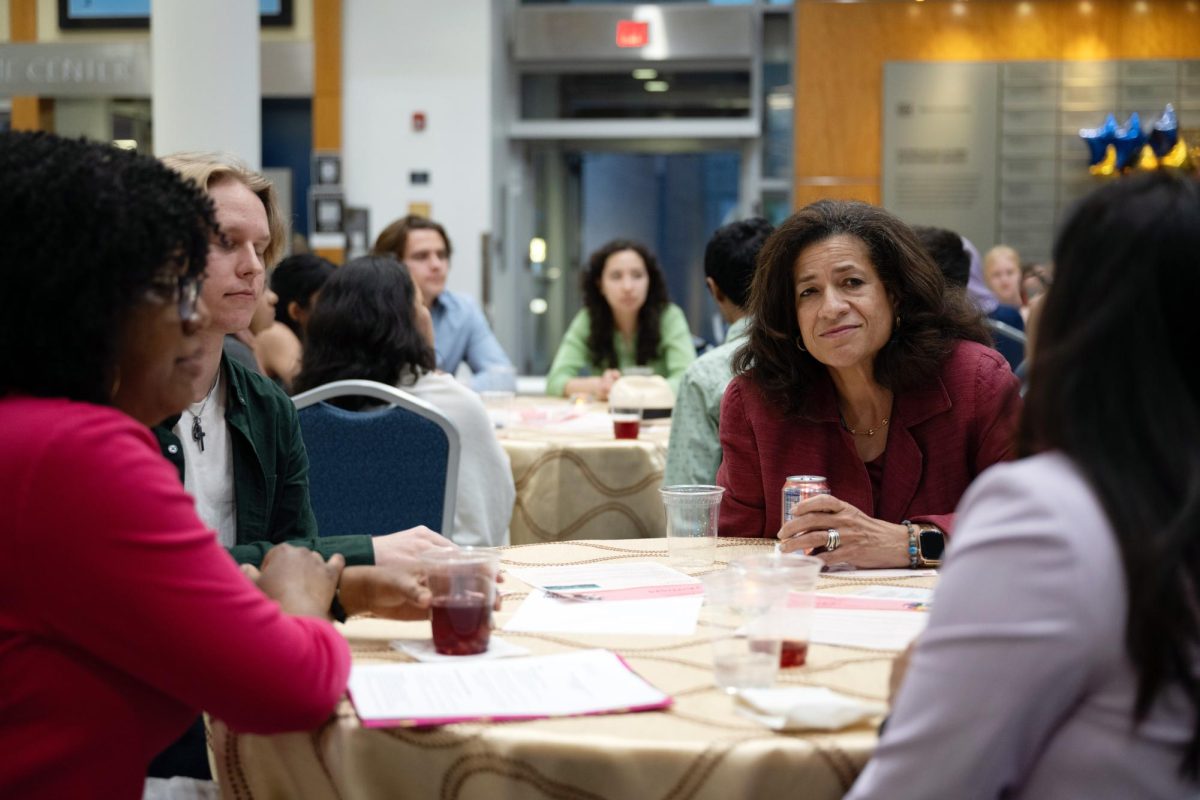A group of students is growing its organization to protect and preserve oceans and beaches.
The Surfrider Foundation Club at GW – a chapter of the Surfrider Foundation, a national nonprofit environmental organization that works to safeguard oceans and beaches – registered as a student organization in December but is kicking off with events this fall. Student organization leaders will participate in water cleanups near campus and encourage students and residents to follow sustainable practices, like eliminating single-use plastics.
Sophomore Kalista Pepper, the chair of the group, said she wanted to start a chapter at GW because some of the University’s environmental groups, like GW Trails, lacked a focus in ocean conservation. Pepper said she wanted to connect with students who share her love of the ocean and the environment.
“There’s Trails, there’s Alternative Breaks, but they go out and hike,” she said. “You don’t have the people who just lounge on the beach all day and then want to pick up trash afterward or want to do something more for it. It was finding that community of people who cared.”
Pepper said about 200 people have signed up for the organization’s email list since the beginning of the semester. She said about 20 people, including the six-member executive board, participated in Surfrider’s first cleanup at the Georgetown waterfront last month.
Pepper said she grew interested in protecting the environment and ocean while spending time on the Outer Banks – barrier islands off the coast of North Carolina – for the last three years.
“I’ve always loved the ocean, but I missed it coming to D.C.,” she said. “D.C. is landlocked, it’s hard when you don’t have sand and seagulls and stars, and I miss it.”
This fall, members have participated in cleanups at the Georgetown waterfront and met with Rep. Greg Murphy, R-N.C., last month to discuss the effects of offshore drilling, she said.
“You see all of these people come to do something to be more than themselves and be better people, it’s incredible,” she said. “That’s continued to happen consistently with every one of our cleanups. We see some of the same faces, we see some new ones every time.”
Pepper said the group has hosted activities like a documentary night. She said she hopes to work with Take Back the Tap – a nationwide initiative on college campuses that encourages students to ban bottled water use – to encourage the GW community to get more involved in the program.
“Both of our missions include ending single-use plastic usage on the GW campus,” Pepper said. “That starts with awareness of the problem, then we move on to why the problem is something that needs fixing, then we work on solving the problem on a permanent level.”
Sophomore Claire Hoffman, the group’s treasurer, said chapter members visit D.C. restaurants to discuss sustainable practices, like reducing single-use takeout utensils and only providing straws to customers upon request.
Pepper, the group’s chair, said members have spoken with restaurants like Duke’s Grocery, Bluestone Lane and Circa.
Hoffman said members of the group, like other Surfrider chapters, tell employees at local restaurants about Surfrider’s program to help businesses meet the foundation’s “ocean friendly” criteria of only using reusable foodware onsite and eliminating styrofoam use.
“A lot of restaurants are moving toward being more environmentally friendly and conscious about that, especially in Foggy Bottom,” she said. “It’s a really great thing to have going for you but a lot of restaurants have been really open to it.”
Hoffman said she believes grassroots works are important for environmental advocacy and hopes the group can make a positive impact on the environment by being involved in the legislative process. She said having grassroots groups like Surfrider involved in the legislative process is important because it “streamlines the connection from the public to those in places of power.”
She said members of Surfrider stay up to date with environmental policy and advocacy efforts in Congress and run social media campaigns.
“Change starts at the bottom, but we have to get the people at the top involved,” she said. “That goes hand-in-hand with getting a good group of people who are really passionate about it because I think grassroots efforts make change at the top.”
Sophomore Chandler McDowell, the chapter’s secretary, said the group is working with Timothy Kane, the associate director for inclusion initiatives, to plan a presentation for the University’s annual Diversity Summit, which will take place next month. She said the chapter met Kane at the fall organization fair last month.
McDowell said Kane asked the group’s board members to participate in the summit after he explained that officials were looking for a student environmental group to participate in the event.
She said the group will speak with summit participants about topics like using sustainable toothpastes, like tooth “tabs,” chewable toothpaste alternatives that Lush Cosmetics offers.
“He was like, ‘We’ve been looking for an environmental group on campus to come to the Diversity Summit and either speak to us and show a PowerPoint, or just walk around, or have a booth,’” she said. “So we have the opportunity to do that.”
Samantha Serafin contributed reporting.







